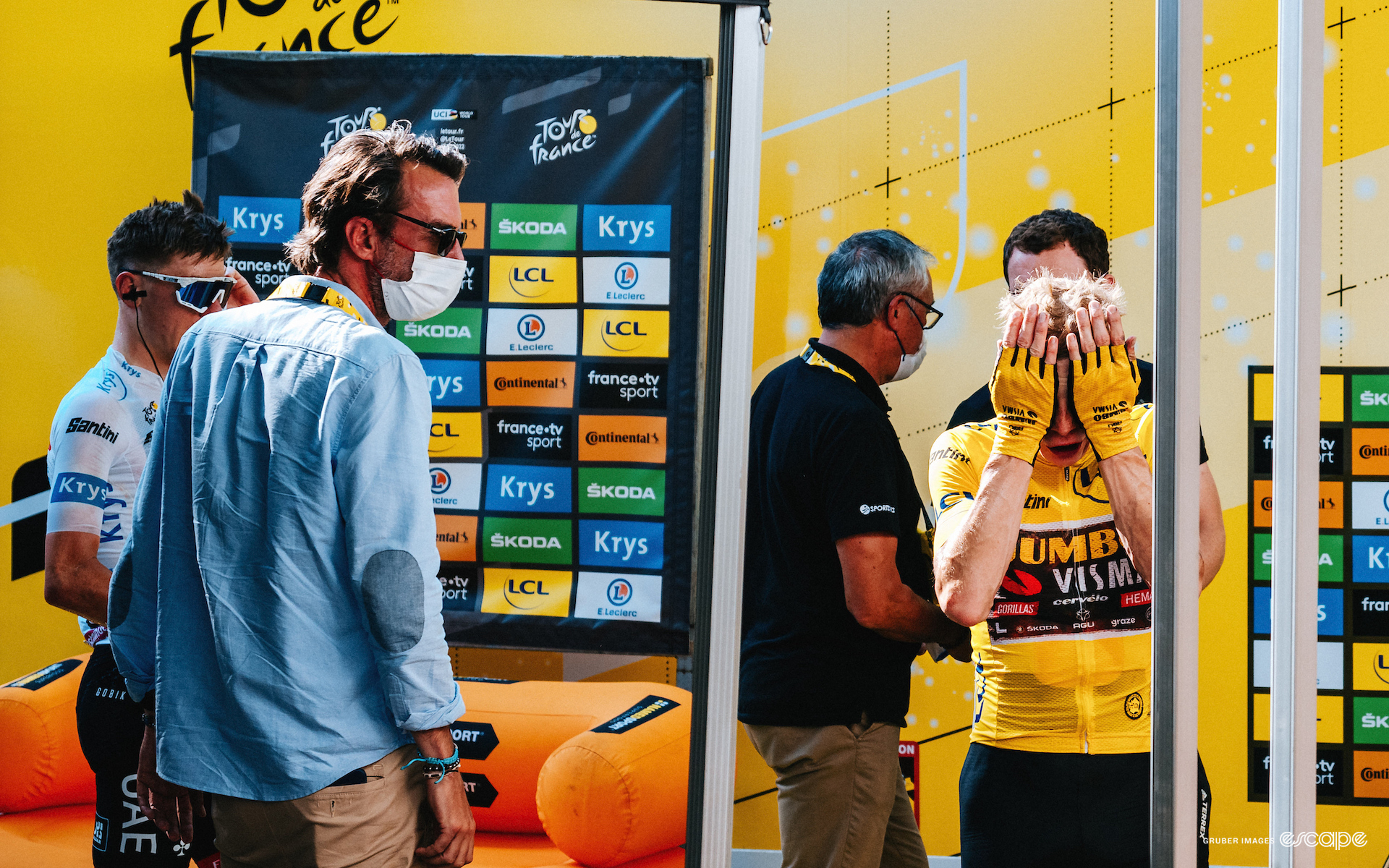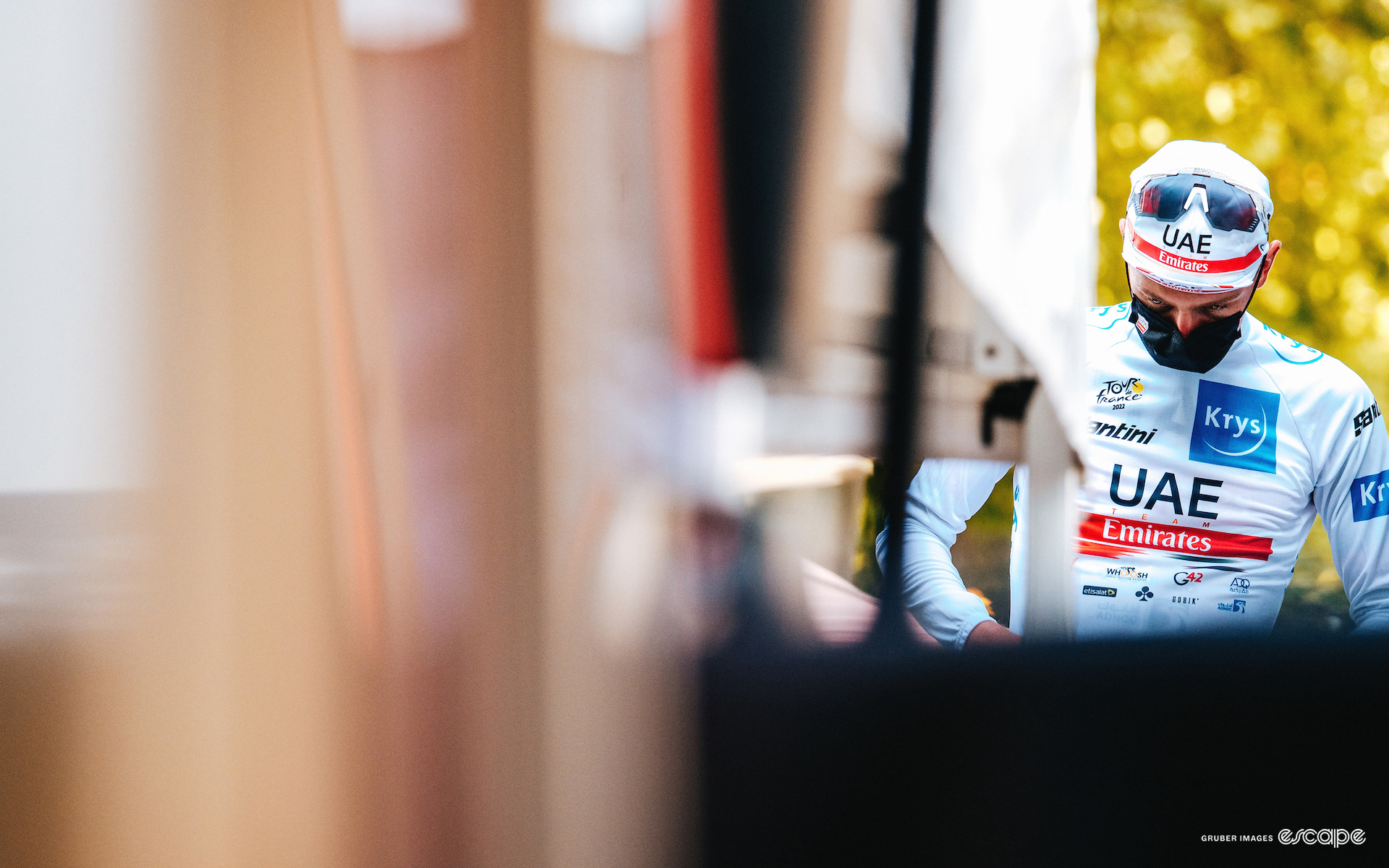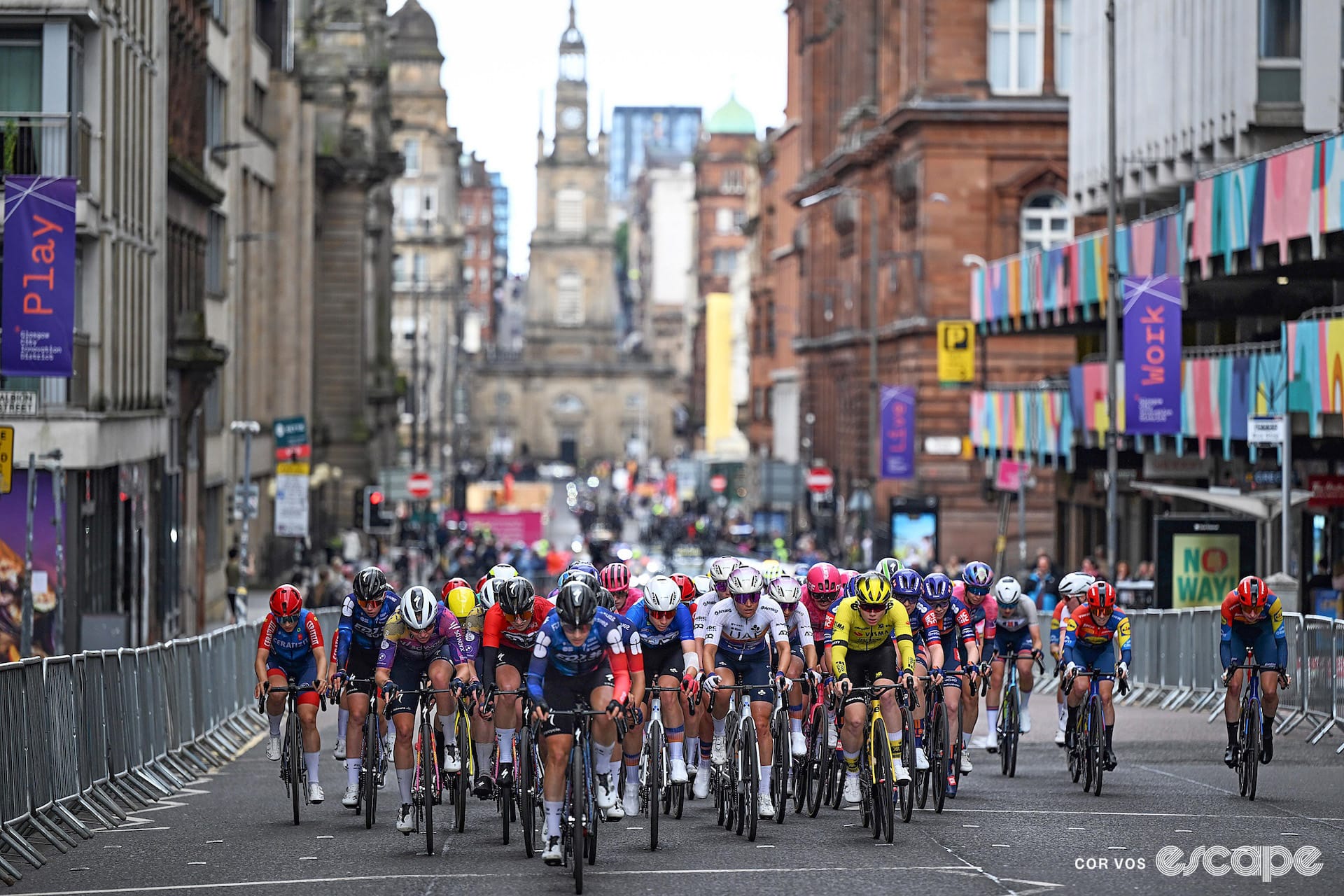After a pandemic aftershock spread through the Giro d’Italia peloton last month, an insider told Reuters that Tour de France organisers intend to re-introduce COVID-19 protocols in time for the Basque Grand Départ.
The Giro got underway just as the World Health Organisation (WHO) described “an end to COVID-19 as a public health emergency”. The announcement was published “with great hope”, and it was heralded by many as a declaration of the end of the pandemic, though the official statement also asserted that the virus is “still killing, still changing” - not over.
That became eminently clear a week into the first Grand Tour of the season when COVID-19 began striking names from the start list. Then things escalated a few days later after stage 9 when top favourite Remco Evenepoel, who had won that day’s ITT but looked distinctly under the weather, tested positive and withdrew from the race on the eve of the first rest day.
As the Giro’s organisers and participating teams clamped down on internal measures, debate swirled around the race as fans, critics and armchair experts questioned the continued impulse to conduct tests, and the necessity to abandon the race should a rider test positive. That riders and teams were citing symptoms, some of them - including departing race leader Evenepoel - clear for all to see, didn’t seem to factor in the discussion.
Following the re-introduction of measures and the prompt withdrawal of symptomatic riders, COVID-19 seemed also to take its leave from the race, content with having worked together with horrible conditions to take out more than 50 riders.
With the improving weather and a healthy state of affairs in France - just 3,204 COVID-19 cases were were reported in the country on Friday, compared to about 25,000 daily cases this time last year - it was hoped that a relative normality might be restored to pro cycling in July. But the Tour organisers and teams are wary of a repeat of what happened in Italy.

Jonas Vingegaard took victory at the Tour last year, a race significantly less affected by the virus than in previous years, though not untouched - organisers clamped down on media access to the paddock about midway through the race.
In an interview before the Critérium du Dauphiné, Vingegaard was asked about the continued threat of COVID-19 and he admitted that it’s “a worry”.
“For sure, it’s something we have to be careful about, we were already careful last year, and now you get a bit scared seeing how it was in the Giro d’Italia,” Vingegaard told a small group of reporters on Friday. “So I have to stay focussed and try to not get sick…and I stay in my own room, try not to shake hands with people and avoid too much contact.”
Among the new race protocols is the confinement of teams and staff in their hotels, and as part of Jumbo-Visma’s own measures, Vingegaard’s team is putting its riders up in single rooms at their hotels to further reduce unnecessary contact.
When asked if he would consider continuing the race should he test positive - it’s unclear if the question stipulated whether or not he would be symptomatic - Vingegaard was vague: “I can’t answer that, hopefully it won’t happen”.
Some of the expected measures for the Tour de France:
- Obligatory social distancing with everyone outside the racing bubble
- Masks must be worn at all times, with the exception of zones and situations designated by the organisation, for instance while riders are being interviewed or appearing on stage to accept a prize or jersey
- Stage winners and category leaders to receive their prizes and/or distinctive jerseys before they step out on stage, where there will be no interaction with the officials and hostesses
- Reduced media access: re-establishment of ‘boxes’ in the media zone between paddock and podium
- No selfies or autographs
Did we do a good job with this story?



